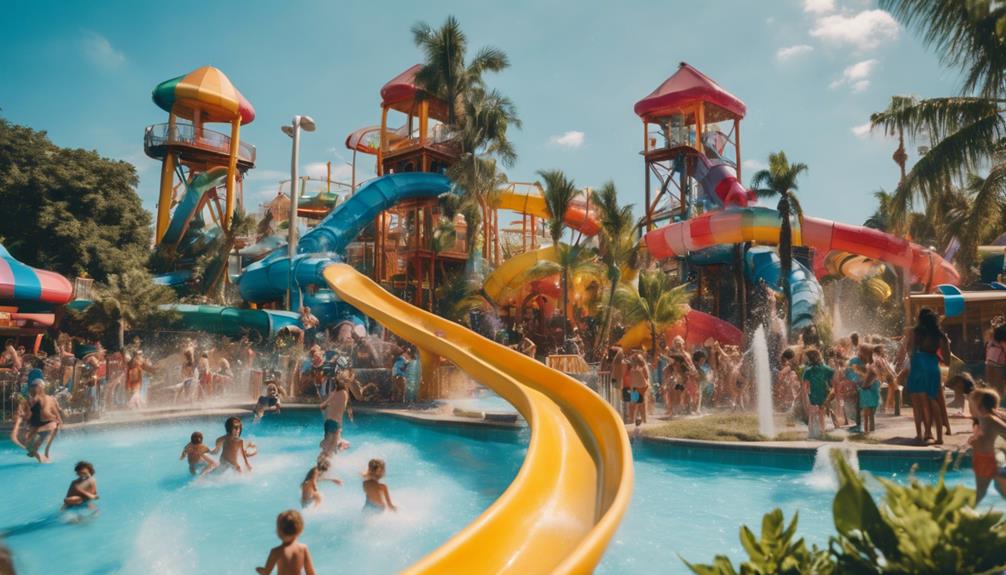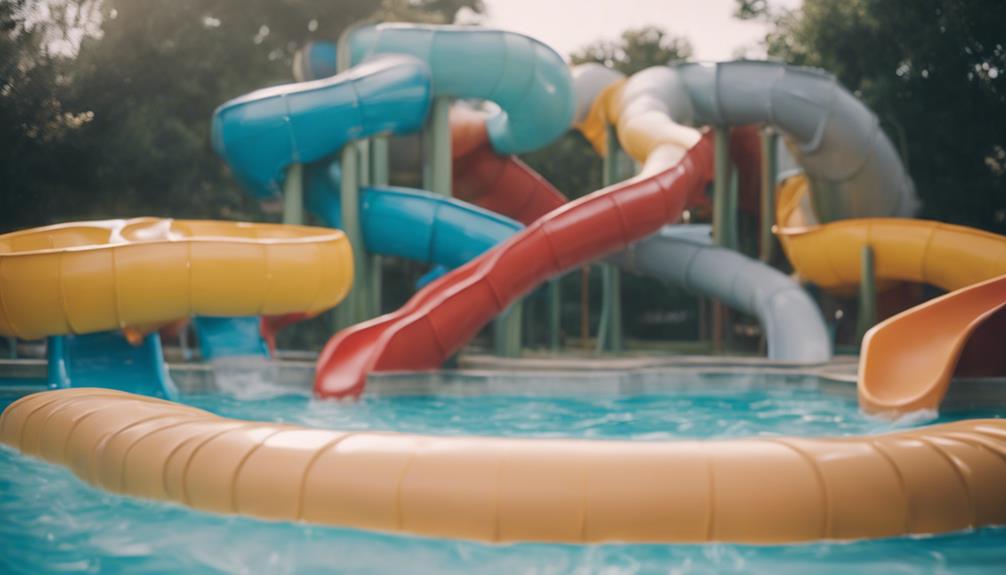When looking for the finest pool heater, consider factors like efficiency, cost, and climate suitability. Solar heaters, harnessing the sun's energy, are sustainable and long-lasting, but come with an initial cost. Electric heat pumps are eco-friendly but less effective in extreme cold. Gas heaters are quick to heat but have higher monthly costs. Factor in pool size and climate for the best heater selection. Energy efficiency reduces expenses. For a well-informed decision, assess your specific needs and the heater's environmental impact.
Key Takeaways
- Solar pool heaters are sustainable and cost-effective, lasting 15-20 years with proper maintenance.
- Electric heat pumps are energy-efficient, environmentally friendly, and have relatively low monthly operating costs.
- Gas pool heaters are effective in colder climates with quick heating capabilities but have higher monthly operating costs.
- Consider pool size for heater power, climate conditions for efficiency, initial costs, energy efficiency, and environmental impact.
- The right pool heater choice depends on factors like pool size, climate conditions, initial costs, energy efficiency, and environmental impact.
Solar Pool Heaters
Harnessing the sun's energy, solar pool heaters provide a sustainable and cost-effective solution for warming pool water in an environmentally friendly way. By using solar panels to capture sunlight and transform it into heat, these heaters can lengthen the swimming season by several weeks.
Solar pool heaters are recognized for their longevity, lasting between 15-20 years with proper upkeep. While the initial installation cost can vary from $2,500 to $9,000, they have minimal operational expenses as they depend on renewable energy.
However, it's important to mention that solar pool heaters require abundant sunlight to operate efficiently. In general, they are an eco-conscious option for pool owners seeking to diminish their carbon footprint and cut down on long-term heating costs.
Electric Heat Pumps
Electric heat pumps offer a sustainable and energy-efficient method of heating pool water by utilizing heat from the surrounding air. These pumps work by extracting heat from the air and transferring it to the pool water, making them environmentally friendly and cost-effective.
Electric heat pumps typically last between 10-20 years and have an installation cost ranging from $2,000 to $7,000. One of the key advantages of electric heat pumps is their relatively low monthly operating costs compared to other types of pool heaters.
While they may not be as effective in extremely cold climates, electric heat pumps are a reliable option for maintaining comfortable swimming temperatures for an extended period, providing a balance between efficiency and affordability.
Gas Pool Heaters

Utilizing either natural gas or propane as a fuel source, gas pool heaters provide an effective heating solution for maintaining ideal swimming temperatures, particularly in colder climates.
Gas pool heaters are known for their quick heating capabilities, making them ideal for those who want to heat their pool on-demand.
While they may have higher monthly operating costs ranging from $300 to $500 compared to other options like solar or electric heat pumps, gas pool heaters are often preferred for their ability to heat water rapidly, regardless of the outside temperature.
Installation costs typically range from $1,500 to $6,000, making gas pool heaters a reliable choice for individuals seeking a dependable and efficient heating solution for their pools.
Considerations for Pool Heaters
When selecting a pool heater, it is important to carefully consider various factors to guarantee peak performance and efficiency for your swimming pool. Factors such as the size of your pool, climate conditions, initial investment costs, energy efficiency, and environmental impact should all be taken into account. Here is a table summarizing key considerations for pool heaters:
| Consideration | Description | Importance |
|---|---|---|
| Pool Size | Larger pools may require more powerful heaters | High |
| Climate Conditions | Colder climates may need more efficient heaters | High |
| Initial Cost | Upfront investment for heater and installation | Medium |
Choosing the Right Pool Heater

Considering the various factors outlined in the previous subtopic, selecting the right pool heater involves evaluating the size of the pool, climate conditions, initial costs, energy efficiency, and environmental impact.
The size of the pool is vital as it determines the heating capacity required. Climate conditions influence the choice between solar, electric heat pumps, or gas heaters. Initial costs vary significantly among the different types of heaters.
Energy efficiency should also be taken into account to minimize long-term operational expenses. Additionally, the environmental impact of the heater, such as carbon footprint and sustainability, is crucial for eco-conscious consumers.
Frequently Asked Questions
Are Pool Heaters Compatible With All Types of Pools?
Pool heaters are compatible with most types of pools, offering a solution to maintain a comfortable swimming temperature. Factors such as pool size, location, and personal preferences play a role in determining the most suitable type of pool heater.
Can Pool Heaters Be Used for Hot Tubs or Spas?
While some may dream of steaming hot tubs or soothing spas, pool heaters are not just for pools. With the right size and type, they can transform your aquatic oasis into a year-round relaxation haven.
How Often Do Pool Heaters Require Maintenance?
Pool heaters require yearly maintenance to guarantee peak performance and durability. Regular upkeep includes cleaning filters, checking for leaks, inspecting electrical components, and verifying gas connections. Proper maintenance enhances efficiency and extends the lifespan of the heater.
Do Pool Heaters Come With Warranties?
Pool heaters commonly come with warranties that vary depending on the manufacturer and model. These warranties typically cover parts and labor for a specific period, providing peace of mind and protection against unforeseen repair costs.
Can Pool Heaters Be Used in Indoor Swimming Pools?
Indoor swimming pools can benefit from the warmth of pool heaters, ensuring a comfortable swim year-round. Solar, electric heat pumps, and gas heaters offer various options to meet specific needs, balancing cost, efficiency, and durability.
Conclusion
To sum up, selecting the best pool heater depends on individual needs and preferences. Just like choosing the perfect swimsuit for a day at the pool, finding the right heater involves considering factors such as cost, energy efficiency, and climate.
Whether opting for the environmentally friendly solar pool heater, the energy-efficient electric heat pump, or the reliable gas pool heater, it is essential to make an informed decision to guarantee maximum comfort and enjoyment in your swimming experience.










